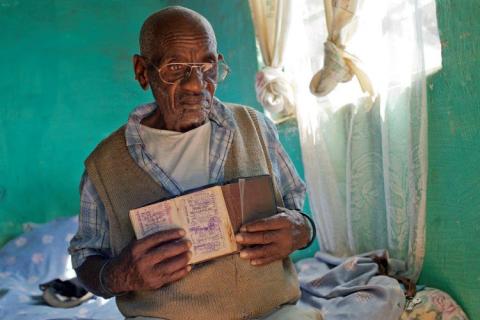About the potential of Forest Landscape Restoration in Boeny, Madagascar – the case of Antanambao Forest
In Madagascar 70% of the population depends on the traditional exploitation of natural resources, and land degradation affects more than 46% of the country's surface area, with costs to 21% of the Gross Domestic Product.
Under the African Forest Landscape Restoration Initiative (AFR100), which is a country-led effort to bring 100 million hectares of forests and degraded land in Africa under restoration by 2030, Madagascar has committed to restore 4 million hectares of its forests and degrade lands (Länderlink Madagaskar einfügen, evtl. Homepage MEDD).
Climategate 10 years on: what lessons have we learned?
A series of leaked emails was leapt on by climate-change deniers to discredit the data, but their efforts may have only slowed the search for solutions
The email that appeared on Phil Jones’s computer screen in November 2009 was succinct. “Just a quick note to encourage you to shoot yourself in the head,” it said. “Don’t waste any more time. Do it today. It is truly the greatest contribution to mankind that you will ever make.”
State launches strategy to achieve 10% forest cover by 2022
• During the launch, Environment and Forestry PS Betty Maina called for concerted efforts to help achieve the government’s target of getting 10 per cent forest cover by 2022.
• Environmental activist Benson Wemali on Friday told the Star more than 70 per cent of Kenyans lack knowledge on forest conservation.
Kenyans are largely ignorant of the importance of forests in the country and that is why they attach little importance to afforestation, an environmental organization has said.
Mapuche Indigenous people in Chile take down symbols of Spanish colonization
Chileans have been taking to the streets around the country to protest economic inequality and a democratic system set up after the dictatorship of Augusto Pinochet that many say is not responding to people's needs.
Indigenous Mapuche protesting in Temuco, a city 420 miles south of the capital of Santiago, last week tore down several statues of Spanish conquistadors and Chilean national heroes that dotted the city’s downtown area.
Democratic values that protected Indonesian rainforests now need saving, too
- The people of Indonesia’s Aru Islands fended off a land grab that would have led to the destruction of a vast area of rainforest, through a sophisticated grassroots campaign that held power to account.
- The campaign holds lessons for rural communities facing similar threats, but their prospects have been diminished by new legislation that strengthens the hand of the powerful and corrupt.
OPINION: Ghana needs a grievance mechanism to secure women’s land rights
As advocates for women’s land rights, isn’t it time we support the establishment of land-rights-specific grievance mechanisms?
From farms to towns, women are a major provider of food and food security for their families, but women in half of the world still struggle to access their equal land and property rights in spite of legal protections.
Land rights body slams Assam government
There are at least 362,450 landless indigenous people in the state and at least 40 lakh without land pattas
The Bhumi Adhikar Sangram Samiti, Assam, and the Guwahati Mati Pattakaran Sangram Samiti on Monday unanimously criticised the Assam government’s decision to adopt a new land policy which will allegedly “empower” the corporate sector rather than the indigenous people of Assam.
Request for proposal for documentation of best practices on the nexus of land governance and the multiverse of women in the IGAD Region
BACKGROUND
Land governance across borders or transnational land governance looks at rule making, standard setting and institution building across borders. Empirically, one can see a variety of patterns of regulatory governance emerging. The studies commissioned by IGAD in 2016 reviewing the of land governance systems in the IGAD Member States identified four transnational elements:
Request for proposal for the production of a documentary on the multiverse of women in the IGAD Region
BACKGROUND
Land governance across borders or transnational land governance looks at rule making, standard setting and institution building across borders. Empirically, one can see a variety of patterns of regulatory governance emerging. The studies commissioned by IGAD in 2016 reviewing the of land governance systems in the IGAD Member States identified four transnational elements:










